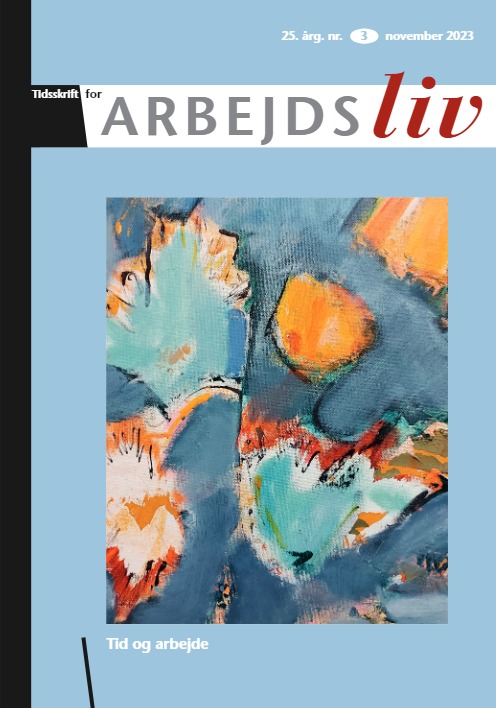Temporal environments in the 4-Day Workweek
– Experiences from Two Municipal Cases
Keywords:
Komprimeret arbejdsuge, Fleksibilisering, Temporalitet, Rytmer, KontrolAbstract
In recent years, interest in the 4-day workweek has spread significantly, both internationally and in Denmark. This article presents insights from qualitative studies of two Danish 4-day workweek experiments within the municipal sector. We illuminate how the transition to a 4-day workweek affects temporal environments in the workplace, based on a conceptual framework derived from the sociology of time and working life research. The analysis shows that temporal environments undergo changes in a complex interplay between movements towards increased flexibility and boundarylessness in time and space on one hand, and on the other hand initiatives aimed at structuring the temporality of work, taking into account interactions between work and other aspects of life. The article highlights a series of dilemmas and challenges that must be addressed if the experiences from these experiments are to serve as a basis for adoption of the 4-day workweek on a larger scale.
Downloads
Published
How to Cite
Issue
Section
License
Copyright (c) 2023 Forfatteren og tidsskriftet i samarbejde

This work is licensed under a Creative Commons Attribution-NonCommercial 4.0 International License.
Forfattere, der publicerer deres værker via dette tidsskrift, accepterer følgende vilkår:
- Forfattere bevarer deres ophavsret og giver tidsskriftet ret til første publicering, samtidigt med at værket ét år efter publiceringen er omfattet af en Creative Commons Attribution-licens, der giver andre ret til at dele værket med en anerkendelse af værkets forfatter og første publicering i nærværende tidsskrift.
- Forfattere kan indgå flere separate kontraktlige aftaler om ikke-eksklusiv distribution af tidsskriftets publicerede version af værket (f.eks. sende det til et institutionslager eller udgive det i en bog), med en anerkendelse af værkets første publicering i nærværende tidsskrift.
- Forfattere har ret til og opfordres til at publicere deres værker online (f.eks. i institutionslagre eller på deres websted) forud for og under manuskriptprocessen, da dette kan føre til produktive udvekslinger, samt tidligere og større citater fra publicerede værker (se The Effect of Open Access).





